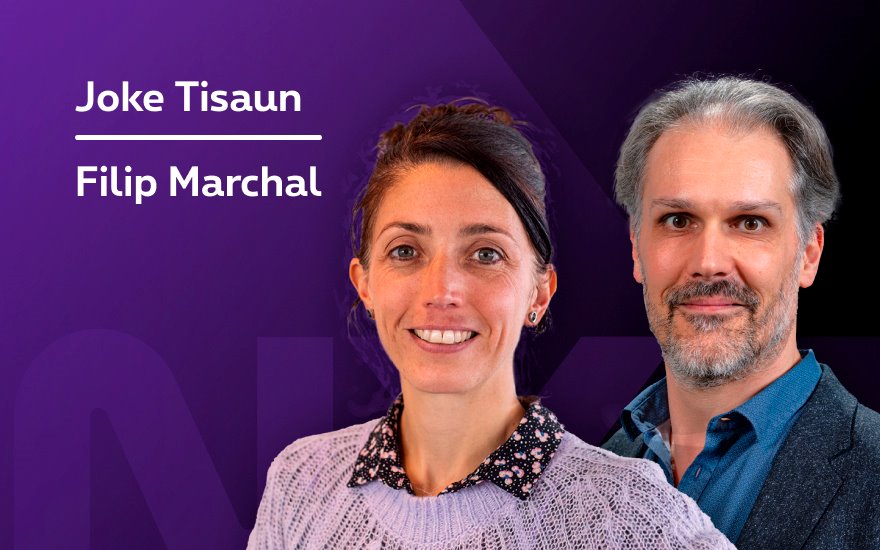The role of the cloud in e-healthcare
Published on 06/05/2020 in Inspire
How do technologies such as artificial intelligence and machine learning help to progress e-healthcare and what role does the cloud play here? The view of Ivo Haagen, Product Manager Cloud at Proximus.

The cloud: evolution or revolution?
Ivo Haagen, Product Manager Cloud at Proximus: “Switching to the cloud is becoming more and more important to make applications and programs accessible everywhere. The public cloud plays a major role here. But things are evolving rather slowly. Belgium in particular is proving fairly conservative. However, under pressure from major cloud players, companies are now racing to prepare applications for the cloud.”
With the help of technology, many changes are going on within healthcare. Take a look or download the white paper.
Interest in the sector?New technologies and privacy restrictions
New technologies mean that more and more data are generated and stored. And there are new privacy rules now, too. Ivo: “That’s right, but privacy is just as important as it ever was. All that has changed is the way we use data. Because applications are integrated and users often only have to log in once, we now have to use extra reliable means to collect data.”
Ivo: “That is why new technologies are evolving partly based on data protection and the confidence that the end user has to have in them. For example, there is a move towards multi-factor authentication, and we are also seeing a trend towards saving biometric data by means of eye scans, fingerprints and the like. Responsibility for security also lies partly with the end user, who can download, modify and delete his data.”
We are heading towards thermal cameras which use AI to provide an initial diagnosis quickly on the basis of body temperature. That can mean the difference between life and death.
Ivo Haagen, Product Manager Cloud at Proximus
Data protection
Proximus complies with all privacy and data laws. Data are stored in a closed system. “With cloud computing, the engineers must be able to get to the data. This is why patient data are anonymized. The data remain available in the public cloud, but the patients’ names are replaced by numbers. So, you can still use these data to make calculations, for instance, without knowing who the patient is,” Ivo adds.
Smart cameras, voice technology and face recognition
Various technologies are in the pipeline, such as distance operations using robots. Azure Kinect is another example of a new technology. The Microsoft smart camera detects patterns in movements thanks to artificial intelligence and machine learning. “In departments for people with dementia, doors open and close automatically with Azure Kinect. If a patient feels the urge to wander off, the camera warns the right people.”
Automatic follow-up of medication offers a whole host of possibilities and benefits. So far, we only know a handful of them.
Ivo Haagen, Product Manager Cloud at Proximus
“Voice technology and face recognition are ready, for example, to prompt dementia patients to take their medicine by means of a familiar voice and a digital assistant such as Cortana. This gives nurses more time for better quality care.”
Automatic follow-up of medication
Proximus also makes it possible to follow up on medication end-to-end via smartphone, from prescribing to ordering to administering. “This means that the effect of medicines can be measured far more accurately: what effect is it actually having and what should it be doing? The doctor can also check that the drugs are being taken at the right time. You can send an Alzheimer’s patient a reminder to take his medication. And your smartphone can tell you whether a side-effect of a drug is normal or not.” The possibilities and benefits are huge.
Ivo Haagen is Product Manager Cloud at Proximus. He helps you with your digital transformation to the cloud. Having spent time at the Cronos Groep, Xylos and itnetX Belgium, among others, he has built up end-to-end experience in the public cloud, from sales to implementation and project follow-up.
Thanks to an automatic insulin pump, new technologies are improving the treatment of diabetes patients.
Read the testimonyOne
One magazine is the Proximus B2B magazine for CIOs and IT professionals in large and medium-sized organisations.